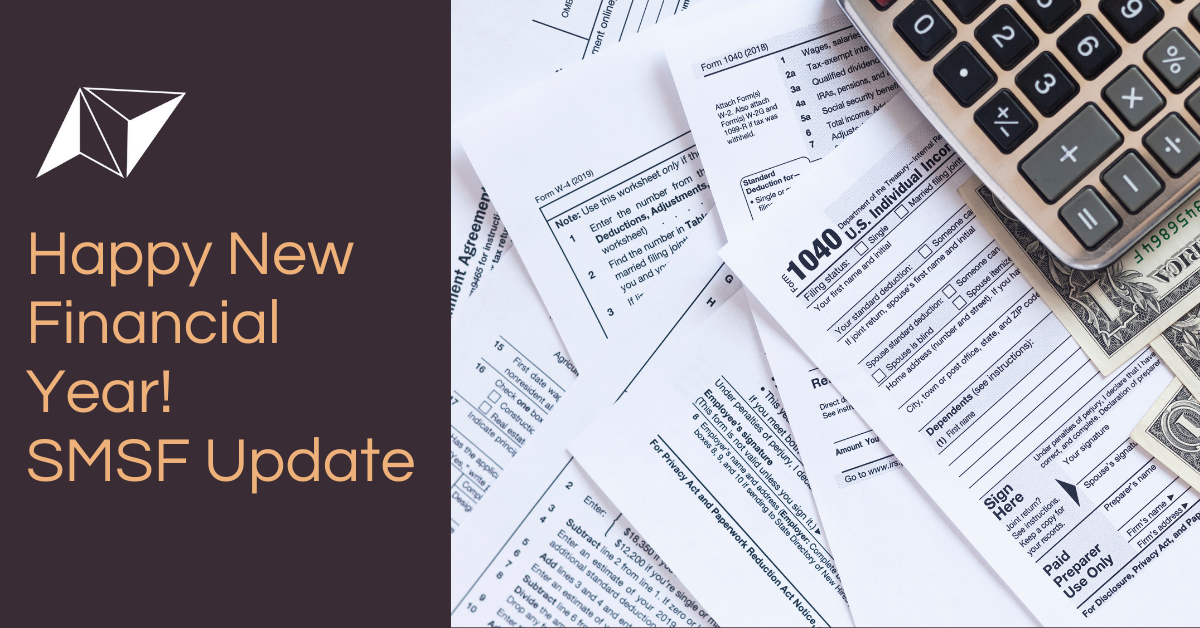Saving tax - The big ticket items
Following on from my recent article about the Great Australian Dream of a tax refund, and it being the bain of my existence, I thought I would follow it up with a piece about what actually is worthwhile to chase in terms of tax planning and minimisation.
Wherever I am, at work or in a social setting, everyone has a question about tax. Everyone. And most people have just enough knowledge to render them dangerous. I tend to find that people are either barking up the wrong tree, or wasting their time chasing very small gains.
Often I see people apparently very keen to save tax, but not so keen to invest upfront in order to access these tax savings.
Play the long game. While I am not rushing to set up entities and structures without reason, I try to flesh out with a client what they are actually trying to achieve financially over the longer term. If you are chasing quick wins, waste someone else’s time, I am busy and important (are you still reading at this point??). It is far more important to bear in mind what your goals are over the longer term, and then determine if some tax-effective structure is consistent with this. If the benefits are worthwhile in the medium to long run, then look past the upfront cost and consider the significant savings that can be achieved by putting in place the most appropriate investment vehicle / structure.
Correct and considered
structuring
can potentially result in many, many thousands of dollars difference in tax upon realising a project or asset. Any adviser worth his or her salt is putting your interests ahead of theirs when looking at the most effective entity to use. Approaching your adviser well in advance of your investment will put them in the best position to give sound advice so that you purchase an asset in the most appropriate name and set up the necessary structure if required. It is often either too late or prohibitively expensive (usually from a tax perspective) to change the name on a contract after the fact. Get it right first up.
- Another important consideration is timing. Consider the following:
- Straddling Capital Gains Tax (CGT) events either side of the Financial Year (if possible)
- Realising (selling) an asset in the year after retirement when your employment income decreases significantly or altogether
- Retaining Profits in a private company and then streaming Franked Dividends at a tax advantageous time
- Holding assets until the 12 month General CGT Discount cuts in
In all cases set out above relating to timing, if you are at all concerned about the value of the asset in question crashing, do not hold off just to “save” tax, you might end up costing yourself a whole lot more in lost value if you hold off selling and the market tanks. If you are concerned, take the profit and pay the tax – tax should never be the prime driving factor, more a significant contributor. Did I mention I cannot give financial advice? Well, I can’t. Control what you can, and keep at the forefront of your mind the things that you cannot.
If you own and run an SME, you should be thinking about succession planning a long way out from your ultimate sale. Remember, you only get to sell the asset once, and this one has your blood sweat and tears embedded in the fabric of it. Make it a winner. Apart from all the things to do to maximise the sale price (see my previous article “What’s Involved in Selling Your Business?”), it is important to make sure that you consider both the timing and structuring of a potential sale. If you know where you are heading early in the business life, then set up accordingly. If the scenario changes, in terms of operational aspects, profitability and assets, growth/risk profile of separate business units, prospective buyers and how they might like a potential acquisition to be positioned, then do not rule out restructuring to achieve the best outcome both while you run the business and for a future transaction.
A big opportunity I see for saving tax in is Estate Planning. I feel that this is the most neglected but important tax planning area, given the substantial level of wealth transfer that is going to take place in the next 25 + years. I think it is partly because people don’t want to face their own mortality, so if they do look at Estate Planning, they prepare a “quick and dirty” Will dividing their estate equally between their beneficiaries, and get the process over and done with as quickly as possible. They also take the view “I don’t care what they do with it when I am gone”… These are the very same people chasing tax deductions that result in a net benefit of two-fifths-of-fuck-all, but when I start talking about something that can potentially save hundreds of thousands of dollars over generations, they don’t want to know about it. Am I missing something? This is not even considering the significant Asset Protection benefits that come along with this sort of Estate Planning.
The long and the short of it is that you need to decide what you want over the longer term. If you are focused on short term quick wins, then keep it simple – use myGov to prepare your Tax Return, or the local Tax Agent who has done an 8 week course and has minimal overheads. If your plans extend beyond the short term, then come and see me, or someone like me, and we can work out a strategy that takes into account your situation and intentions, along with Tax Planning, Asset Protection and cost-effectiveness. Your future self will thank you for it.
Recent Posts

SaabTeece
Liability limited by a scheme approved under Professional Standards Legislation.
Shop 2, 17-25 William St, Earlwood, NSW 2206 Australia








